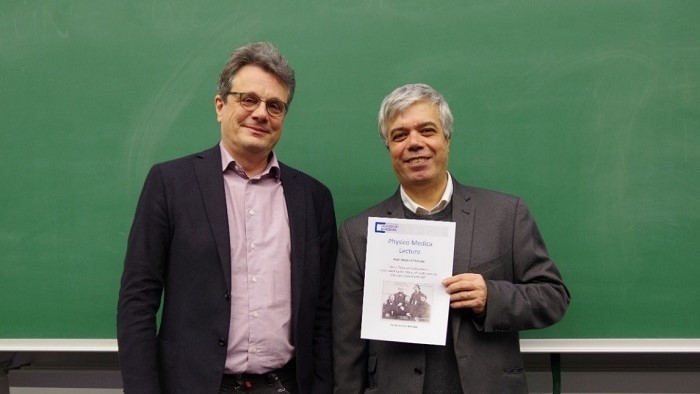Impact of risk factors on cardiovascular diseases
In the middle of December 2019 Prof. Martin O‘Flaherty from the University of Liverpool held the talk “Here, There and Everywhere: The Impact of Cardiovascular Disease in Populations across the World“. Observed changes in mortality trends served as a starting point. Since 1961, a reduction of mortality from cardiovascular diseases, more specifically from coronary heart disease (CHD), was recorded. However, recent publications indicate, that this decline is slowing.
The causes of these trends can be investigated using so called IMPACT models. These are mathematical models based on a difference of prevented or postponed deaths between expected and observed deaths. Demographics, risk factor trends and treatment trends are integrated into the model. Estimates are given to which extend the postponed deaths can be attributed to the different factors.
Results of the IMPACT models for populations with high incidence of CHD, as Sweden, Finland and Iceland, show, that most of the postponed deaths are due to a reduction in risk factors, as cholesterol, high blood pressure and smoking. In populations with low incidence of CHD, as Mediterranean countries, the difference is equally attributed to a reduction of risk factors and to treatment effects. In countries with rising CHD mortality, as China, Syria and Tunisia the main impact factor is cholesterol.
Possible implementations against the slowing decline in CHD mortality are further reduction of risk factors though policies for sugar, salt and tobacco. Another important is assigned to changes in our health care system to overcome the equity gap.
For more than 20 years Martin O‘Flaherty worked as a clinician at a large tertiary academic hospital in Argentina. Since 2006 is a professor for Epidemiology in the Department for Public Health and Policy at the University of Liverpool, UK. Through his experiences in clinical practice with the unequal burden of chronic diseases, he progressively developed his interest in Public Health and epidemiology.
He is one of the world-leading researcher in the area of developing innovative approaches in the prevention of chronic diseases to helping to tackle the challenges that chronic diseases are for our society.
Text: Lilly Brandstetter, Elite Graduate Program "Translational Medicine”


